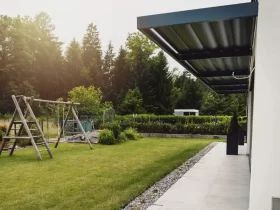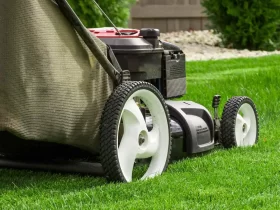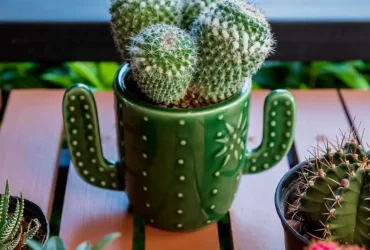Ever wondered how long a housefly can live? They’re constantly buzzing around us, living their tiny but oh so busy lives, and yet we know so little about them! So, how long does a housefly live? From their lifespan to their diet, if you want to know how long do flies live, the life cycle of a fly, and how to prevent a house fly infestation – we’ve got all the answers for you inside this blog post. So grab your microscope and your fly swatter; let’s take a closer look at these fascinating creatures!
All About the Common Housefly and How Long Does a Housefly Live
The common housefly is found worldwide in all types of habitats, preferring a warm and moist climate. There are several different types of houseflies, but the common housefly (Musca domestica) is the species that most often causes problems for people. This type of housefly can quickly spread disease-causing bacteria and other microorganisms by feeding on human food such as garbage and decaying plant material. Houseflies are known to carry pieces of Salmonella and E. coliin their saliva, which can be transferred onto food that humans ingest.
The lifespan of a common housefly can vary depending on the environment and activity level, but generally speaking it takes from one to three weeks for a housefly to reach maturity. The total fly lifespan of an adult common housefly tends to range between 15-25 days – making it important to act quickly when faced with an infestation. Female flies will look for somewhere dark and damp during this time in order to lay their eggs, after which they will die within a week or two as their supplies run low.
Houseflies reproduce rapidly due to their short lifespans so it’s important to be proactive when trying to remove them from your home or business premises – often this may require contacting a professional pest-control specialist if the issue persists beyond simple measures such as closing windows or using bug sprays or other deterrents.
By understanding more about the life cycle of the common housefly you’ll be better equipped with taking preventative steps – prevention is always better than cure!
Where Do Houseflies Come From – Flies Live Among Us!
House flies come from a four stages life cycle beginning with the egg. Female houseflies lay tiny, white fly eggs in or near any type of food source, such as overripe fruit, garbage or excrement. It normally takes 12 to 24 hours for the eggs to hatch into larvae and the larvae begin to feed immediately.
Finally, when they reach full growth (or “pupate“), they create a pupal case that is usually attached to a surface very close to a potential food source as well. This entire process can take between 5 and 7 days depending on prevailing conditions.
After emerging from their pupal cases and eggs hatch, houseflies have an average lifespan of between 14 and 28 days with warmer temperatures tending to contribute to shorter house fly lifespans for adult flies. An adult average house fly mates shortly after emerging from their pupal cases and can thereafter produce eggs starting within 8-12 hours which begins the cycle anew.
How Do Flies Reproduce? The House Fly Life Cycle and Fly Lifespan
The housefly reproduces through a complicated and multi-stage process. This species lays their eggs in batches; a single female fly can lay up to 500 at once. After the eggs are laid they will quickly hatch into larva, also known as maggots.
The larval stage is when the maggot is born and starts its life by feeding, until it matures into an adult fly.
- During the larval stage, these small worms will eat whatever food source was presented when they hatched and typically take between five and twenty days to reach maturity.
- Once maturity is reached, the larvae will enter into the pupa stage, which is when all internal structures and organs develop until the adult fly emerges from the pupa with wings intact. On average this process takes between two weeks and a month depending on environmental conditions and food sources available for growth.
- Once out of their cocooned state (the pupa), adult flies will start to look for locations that are moist or filled with decaying organic matter in order to lay their eggs so that their young could survive and mature properly over time. Females typically mate shortly before laying eggs; thus ensuring successful reproduction of future generations of houseflies.
Through a careful balance of nourishment, time, and depending on the temperature; each batch of houseflies will go though all stages of development until it can emerge into adulthood – which usually happens in a month’s time – ready to start laying eggs for generations to come!
How Do I Keep Flies Out of My Home – A Homeowner’s Guide
Houseflies may only live for two to four weeks in the wild, but that lifespan can be significantly prolonged with a favourable environment. To prevent a fly infestation, and deter them from nesting or breeding within your home and creating an infestation, it is worth taking certain preventative measures.
- Consider using fly traps to catch existing flies and discourage others from entering. Place them around the edges of your house or near common entrances such as windows and doors. Additionally, make sure you use window screens to further reduce their access, as well as check all walls for any potential gaps leading outdoors.
- Take away all potential sources of food within the home: store away any items that may be attractive for a hungry fly – like fruits and sweets – in sealed containers that cannot be breached. Be conscious about regularly removing any waste or old food containers from your home too.
- If you have suffered an infestation then don’t hesitate in calling pest control professionals who can help further secure your home against flies and protect against another re-infestation in future. Often times professional exterminators may also offer long-term prevention plans which can include spraying insecticides inside your home.
- It’s important to ensure that you limit the optimal living conditions for the common fly, and that you do a regular inspection of your home (particularly kitchens and bathrooms), which are the place a house fly typically lives and thrives.
 As a homeowner, it is so important to ensure you regularly clean food preparation surfaces and starving these pests by limiting their food availability by covering or containing any food left out. Given their ability to reproduce quickly, it is important to remember that “cleanliness is next to holiness”, and is a key step to control a house fly infestation.
As a homeowner, it is so important to ensure you regularly clean food preparation surfaces and starving these pests by limiting their food availability by covering or containing any food left out. Given their ability to reproduce quickly, it is important to remember that “cleanliness is next to holiness”, and is a key step to control a house fly infestation.
How to Get Rid of House Flies – Removing a House Fly Infestation
Once a housefly is mature, it usually only lives for around a month. This is why controlling a housefly infestation can be such a challenge. Houseflies reproduce quickly, with hundreds of eggs laid within only two to three days of mating. That’s why it’s so important to take action and employ techniques to prevent female flies from laying their eggs on any surface where food is present.
Using professionally formulated pesticides or DIY traps are the most effective way to quickly and effectively eliminate an ongoing housefly problem. To prevent the growing population in your home, you should keep the environment free from potential breeding grounds, such as rotting food and other discarded organic materials, by promptly discarding and cleaning up all waste.
Other control measures include:
- Fitting window screens that can act as physical barriers preventing flies entering your home in the first place.
- Employing fly traps which use attractive food-based scents to lure flies into a sticky mesh or sugary bait solution which will starve them of oxygen.
- Ensuring you regularly check and clean out fly traps once full.
- Using approved Disinfestors power foggers when using any form of pesticide or aerosols inside your home.
 Conclusion – How Long Do House Flies Live
Conclusion – How Long Do House Flies Live
In conclusion, the life span of a housefly depends on its environment. From pupal stage, the average housefly lives for about 25 days to 30 days, and can complete its entire life cycle in as little as a week; however, the presence of adequate food and moisture allows them to live longer than expected. This means that it is important to keep the area clean and garbage-free to prevent an infestation before it starts.
- Removing any available sources of food or water can disrupt their breeding grounds, reducing the number of houseflies around your home and ensuring they don’t stay alive for too long.
- The use of fly killers or poisonous bait traps can help reduce their numbers, although due to their short lifespans this may be ineffectual in eliminating their populations completely.
- Keeping your living space bug-free will not only keep you safe but also allow you to enjoy peace of mind knowing that there are no unwanted pests sticking around longer than necessary.
In conclusion, the common housefly is an annoying pest, but it can provide us with many insights about the natural world. By understanding how houseflies are born and how to reduce their numbers in our homes, we can help keep our families safe from their potential health risks. With the right preventative measures, we can keep our homes free from the presence of these pesky insects.
If you liked this article, or enjoyed the content, help us out by sharing it on your social media, it helps us out a lot (sharing links are available at the top and bottom of the article). We are excited to highlight great information about how to control pests in your home, and check out some other great articles on How to Get Rid of Fruit Flies, or check out our other details on home lifestyle and tips for your home. Also be sure to check out all of our articles on Backyard Bunkies, Garden Houses and Sheds, and all the various inspirations that we’ve highlighted at TAG Level.































Leave a Reply